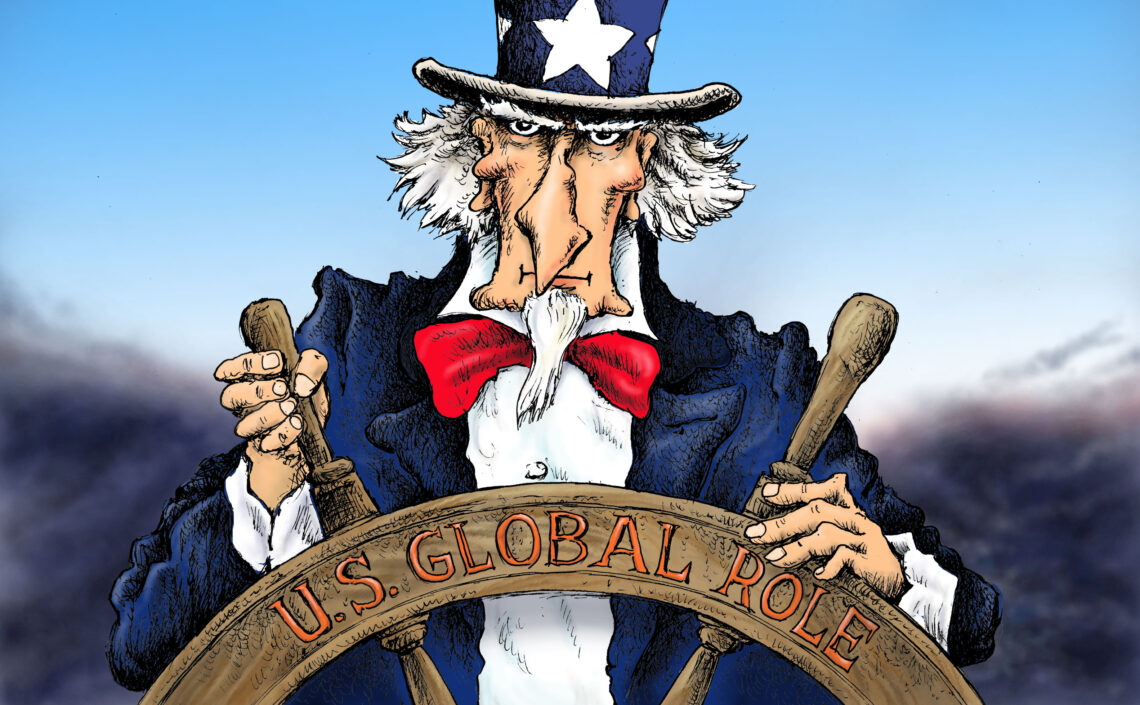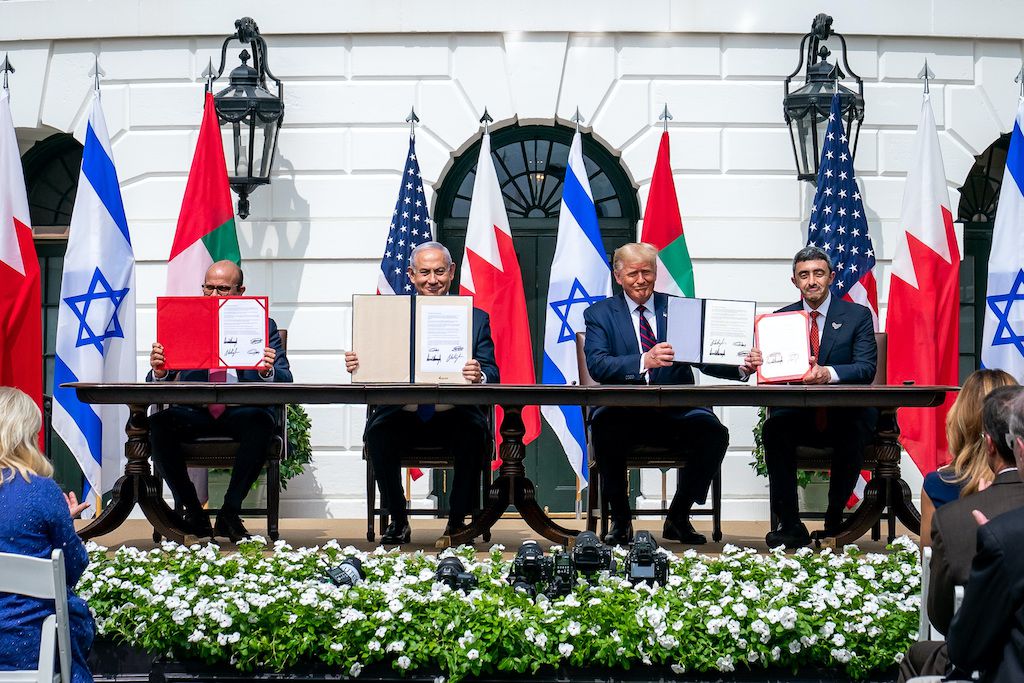A post-Covid rebound in the U.S. is all but inevitable
The United States is a resilient nation positioned to make a quick post-pandemic recovery. A broad assessment of the elements of U.S. power finds few post-Covid challenges that could undermine the country’s stability or sap its capacity to project its global power.

In a nutshell
- The U.S. is well positioned to make a quick economic recovery
- Its political divisions will continue to cancel out each other
- Internationally, its role is more robust than the critics of the Trump administration are willing to admit
This GIS 2021 Outlook series focuses on the opportunities that stem from the upheaval of the past year.
Pandemics are a unique sort of global disaster. A disease does not destroy infrastructure. Sometimes, actually, the disruptions trigger beneficial adjustments to processes and new sources of productivity. By historical standards, the outbreak of Covid-19 is not nearly as devastating or deadly as other global disease flare-ups. Resilient societies – and the United States are undoubtedly near the head of that pack – will be positioned to make quick recoveries.
A broad assessment of the elements of U.S. power and the state of American society finds few insurmountable challenges related to the pandemic that could undermine the country’s stability or its capacity to project power.
The center holds
One potentially troublesome impact of pandemics is social disruption. Last spring, the U.S. experienced a spike of mass demonstrations related to racial equality and law enforcement reform issues. By the summer, however, the street protests diminished noticeably, as did public support for them. Attention was supplanted by concerns over endemic rioting and organized violence in a limited number of cities. The primary organizing groups behind this activity, including Antifa and the Black Lives Matter movement, promoted a broader and more radical political reform agenda that has not resonated with the social mainstream. Nor has the U.S. post-Covid seen widespread resistance to public health measures imposed by states and the federal government.
Despite the disputes over the presidential election results, there remains a healthy resilience in the national polity.
While the recent U.S. national elections demonstrated again that Americans are deeply politically divided, that does not appear to have significantly exacerbated the fraying of America’s social cohesion. Indeed, the elections revealed shifts in support for political parties among different demographic groups, changes in geographic voting patterns and record participation in voting in the national elections. Despite the disputes over the presidential election results, the fundamental lesson seems to be that there remains a healthy dynamism and resilience in the national polity. America’s political divisions will remain dramatic but also likely to cancel each other out, moderating the balance of political power in the U.S. over the near term.
Fit economy
On the economic front, the U.S. post-Covid also appears to be positioned to rebound better than most. Unemployment has declined from the pandemic and the U.S. stock market continues to perform strongly. A recent report from Morgan Stanley concluded that recovery over the next 18 months would determine the pace of economic growth over the following three to five years. The analysts have detailed four different scenarios. The most optimistic one projects a sustainable 2.5 percent gross domestic product (GDP) growth rate, modest inflation and a halving of the national debt-to-GDP ratio. Given that the U.S. economy entered the pandemic in a very robust state and that one can assume a rapid deployment of vaccines and therapeutics to manage the SARS-CoV-2 virus, the expectation that the U.S. recovery will lean toward the more optimistic scenarios seems well-founded.
Concerning international affairs, the U.S. post-Covid is not going to emerge from the pandemic in a weakened state. The rhetoric and hyperbole over the Trump administration’s performance are somewhat disconnected from the reality of the strengthening of the U.S. geopolitical position. From an adversarial perspective, in an era of great power competition, no nation has exploited the pandemic to improve its leverage over the U.S dramatically. The maximum pressure campaigns against Iran and North Korea have arguably been effective. Neither is in a stronger position than they were four years ago.
Strong as ever globally

Russian initiative from Ukraine to Georgia, Moldova, Syria and Libya seems to have stalled on every front. At the same time, Moscow is struggling to deal with significant disruptions along its borders, with the political turmoil in Belarus and the barely contained conflict between Armenia and Azerbaijan. China has experienced unprecedented pushback from the U.S. administration, notably on trade, disputes over the South and East China Seas, commercial investments by the Chinese telecom company Huawei and Chinese activities influencing international organizations, such as the World Health Organization.
From the perspective of working with friends and allies, again, the U.S. position is stronger than the public controversy over the Trump administration’s policies would suggest. Without question, the key U.S. relationships in the Indo-Pacific, including with Japan, India and Australia, are stronger. In the Middle East, the U.S. has achieved dramatic gains in normalizing relations between Israel and the Arab nations, strengthening the prospects for the region’s greater collective security and economic integration. In Europe, the U.S. role in NATO has largely been reaffirmed. Unquestionably, in Latin America and Africa, this administration had more cordial and productive relations with crucial nations than the Obama administration.
Reductions in defense could influence Chinese and Russian decision-making and prompt concerns among friends.
In addition to formal alliances, the U.S. introduced many initiatives over the last four years that have proven popular and effective. Washington, for example, has helped jump-start the Three Seas Initiative in Central Europe. The U.S. has promoted the Blue Dot Network and Clean Networks initiatives and international investments, offering alternatives to Chinese-assisted development.
While on the campaign trail, President Trump’s critics emphasized the importance of changing “tone” and rejoining international organizations and multilateral agreements. These are secondary and tertiary measures of, at best, modest consequence. The reality is, U.S. foreign policy between administrations tends to exhibit continuity as much as change. Despite the over-the-top rhetoric, the next political transition will likely reflect this as well.
Potential snags
There could well be some shifts slowing U.S. emergence – mostly on the economic front. For one, free trade agreements (FTAs) were not a priority for either candidate during the campaign. Other than a U.S.-United Kingdom FTA, the prospects for new such arrangements are dim. The U.S. appetite for protectionist economic policies seems only to gain more bipartisan traction. Further, the aggressive deregulatory environment of the last four years appears to be coming to an end. There is little bipartisan will to trim government deficit spending and increased pressure to raise taxes. The expectation for new regulatory intervention, particularly in the energy and environment sectors, seems higher. All these interventions could hold down not only the U.S. recovery but its impact on the global economy.
American defense investments could also flatten in the years ahead. At first, this will have a scant short-term impact, as the armed forces’ readiness has demonstrably improved over the last four years. However, reductions in defense could influence Chinese and Russian decision-making and prompt concerns among friends and allies that rely on the U.S. for extended conventional and strategic deterrence.
The most likely scenario is a strong short-term recovery by the U.S. over the next two years. It will leave the nation in a comparable strategic position relative to friends, allies and competitors. In the near term, many could well be surprised at how globally relevant the U.S. post-Covid remains and how similar the world looks after the pandemic.








